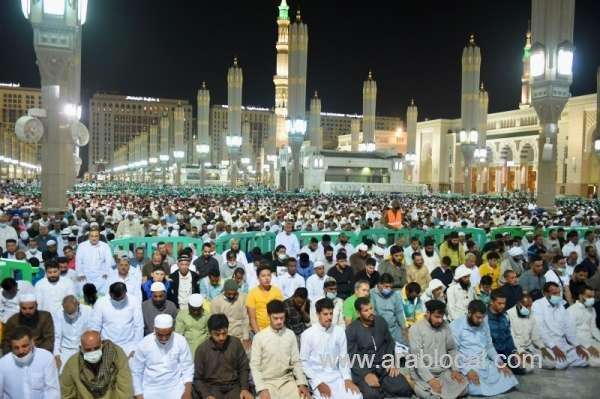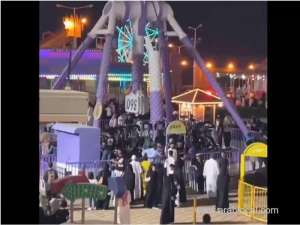Saudi Arabians and Muslims throughout the world exhaled a sigh of relief as they began the fasting month of Ramadan in an atmosphere of spirituality and joy, free from the fears and restrictions of the Coronavirus pandemic.
Following the outbreak of coronavirus in March 2020, a few weeks before the holy month of Ramadan, the faithful were likened to a thunderbolt when they were restricted from performing congregational prayers and Friday prayers at the Two Holy Mosques and other mosques throughout the Kingdom for several months.
Consequently, the Saudi authorities suspended the Umrah pilgrimage for both domestic and foreign pilgrims. During a few months, all mosque prayers were suspended, while prayers at the Two Holy Mosques were restricted to Haram Presidency officials and cleaning workers. Following the receding of the pandemic cases, the prayers at the Holy Mosques and the Umrah pilgrimage were resumed phase by phase.
The holy month of Ramadan comes after most of the precautions and preventive measures that were imposed following the pandemic two years ago have been lifted. After a two-year hiatus, pilgrims and worshippers are allowed to use the full capacity of the Grand Mosque in Makkah and the Prophet's Mosque in Madinah without maintaining social distancing.
During Ramadan, which marks the peak season of Umrah every year, hundreds of thousands of Umrah pilgrims from all over the world will arrive in the Kingdom.
Authorities and security agencies have mobilized all their capabilities and resources to provide the best possible facilities and services to Umrah pilgrims and visitors to the Two Holy Mosques, including the Presidency for the Affairs of the Two Holy Mosques. For the first time in two years, mass iftar meals and itikaf are permitted.
Sheikh Abdul Rahman Al-Sudais, head of the presidency, said dry foods such as bread and cheese were allowed inside the Two Holy Mosques during Ramadan. According to him, the ritual itikaf will resume at the Holy Mosques in accordance with the new rules. The presidency has begun issuing permits via its official website.
Following the outbreak of Covid-19, itikaf, the practice of staying in a mosque solely for the purpose of worship and meditation, was suspended at the Two Holy Mosques during Ramadan in 2020. As a precautionary measure to stem the spread of Coronavirus, itikaf was suspended during Ramadan of 2021. During the last 10 days of Ramadan, up to 100,000 worshipers used to perform itikaf at the two holy mosques





